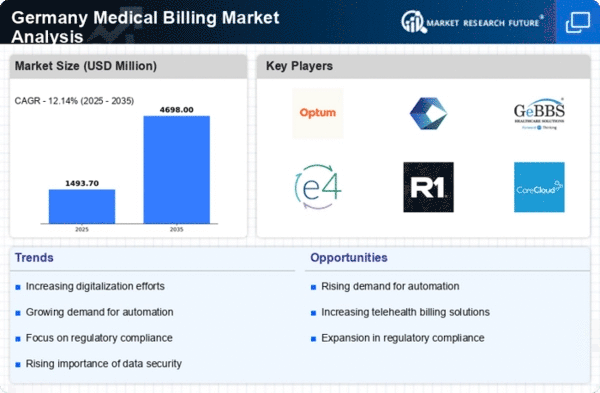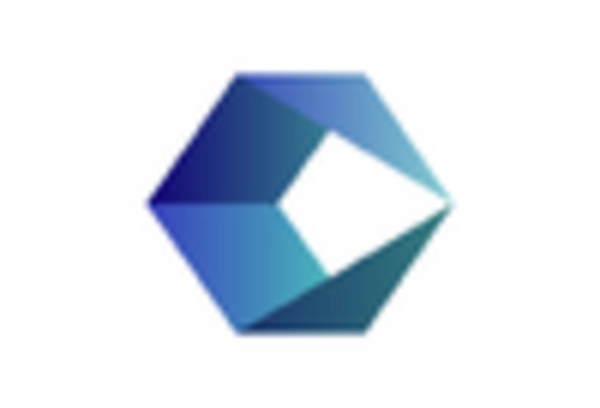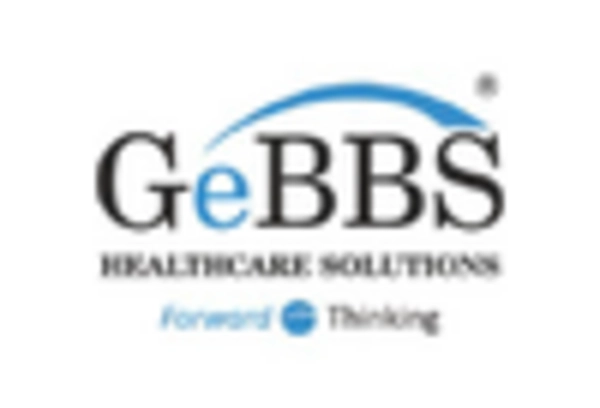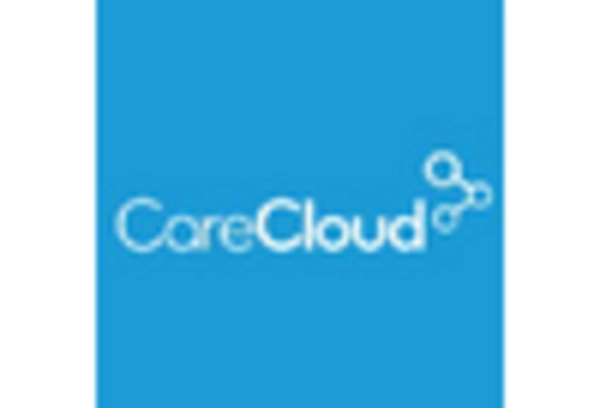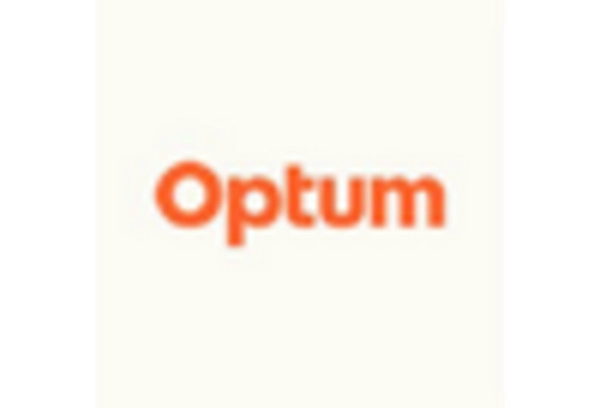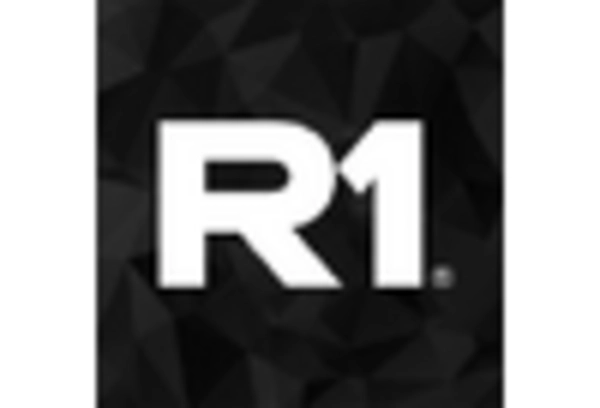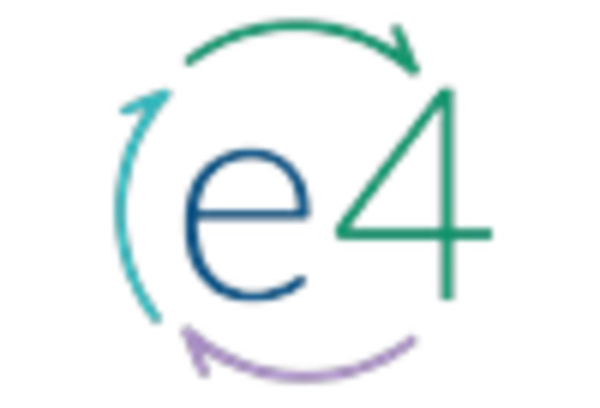Rising Healthcare Expenditure
The medical billing market in Germany is experiencing growth driven by increasing healthcare expenditure. In recent years, healthcare spending has risen significantly, with estimates indicating that it could reach approximately €500 billion by 2025. This surge in spending is largely attributed to an aging population and the rising prevalence of chronic diseases. As healthcare providers invest more in advanced technologies and services, the demand for efficient medical billing solutions is likely to increase. Consequently, this trend may lead to a more streamlined billing process, reducing errors and improving revenue cycles for healthcare institutions. The medical billing market is thus positioned to benefit from this upward trajectory in healthcare investment, as providers seek to optimize their financial operations.
Shift Towards Digital Solutions
The medical billing market in Germany is witnessing a notable shift towards digital solutions, which is reshaping the landscape of healthcare administration. With the advent of electronic health records (EHR) and telemedicine, healthcare providers are increasingly adopting digital billing systems. This transition is expected to enhance efficiency and accuracy in billing processes, potentially reducing administrative costs by up to 30%. As more healthcare facilities embrace these technologies, the medical billing market is likely to expand, driven by the need for integrated solutions that facilitate seamless communication between providers and payers. The growing reliance on digital platforms may also lead to improved patient experiences, as billing becomes more transparent and accessible.
Emergence of Value-Based Care Models
The medical billing market in Germany is evolving in response to the emergence of value-based care models. These models prioritize patient outcomes over the volume of services provided, which necessitates a shift in billing practices. As healthcare providers transition to value-based reimbursement, the medical billing market must adapt to accommodate new payment structures that reward quality rather than quantity. This shift may lead to the development of innovative billing solutions that track patient outcomes and facilitate performance-based payments. Consequently, the medical billing market could experience growth as providers seek to implement systems that align with these new models, ensuring they can effectively manage their financial operations while delivering high-quality care.
Increased Focus on Patient-Centric Care
The medical billing market in Germany is influenced by a growing emphasis on patient-centric care. Healthcare providers are increasingly recognizing the importance of patient satisfaction and engagement, which has led to a reevaluation of billing practices. This shift may result in the implementation of more transparent billing processes, allowing patients to understand their financial responsibilities better. As a result, the medical billing market is likely to adapt by offering solutions that prioritize patient communication and education. This trend could potentially enhance patient loyalty and retention, as individuals feel more informed and empowered regarding their healthcare expenses. The focus on patient-centricity may also drive innovation in billing technologies, fostering a more responsive healthcare environment.
Regulatory Changes and Compliance Needs
The medical billing market in Germany is significantly impacted by ongoing regulatory changes and compliance requirements. The introduction of new healthcare regulations necessitates that providers adapt their billing practices to remain compliant. For instance, the implementation of the Digital Healthcare Act has prompted healthcare organizations to enhance their billing systems to align with new standards. This regulatory landscape creates a demand for specialized billing solutions that can ensure compliance while optimizing revenue cycles. The medical billing market is thus likely to see growth as providers seek to navigate these complexities, investing in technologies that facilitate adherence to regulations and reduce the risk of penalties. This focus on compliance may also drive collaboration between healthcare providers and billing service companies.


